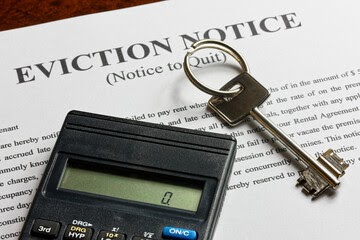Table of Contents
Florida Tenancy Laws
With over 21 million people, Florida is one of the biggest states by population in the country. Florida has put an extensive set of laws that govern the relationship between the landlords and tenants. Every tenant and landlord from Florida should be familiar with the following rights.
The Right to Fair Housing in Florida
 Like in other states in America, the tenants in Florida are given protection by the Fair Housing Act of 1968. The aim of this act is to abolish discrimination pertaining to renting and leasing of business premises as well for living in.
Like in other states in America, the tenants in Florida are given protection by the Fair Housing Act of 1968. The aim of this act is to abolish discrimination pertaining to renting and leasing of business premises as well for living in.
Landlords all over Florida are required to treat all tenants equally and without any favors. Especially tenants from the protected classes, including color, familial status, disability, mental or physical, natural origin, religion, race, and sex.
Any other additional classes different from the seven that are already protected are not considered in the Florida landlord-tenant law. An instance of housing discrimination may include a Jewish landlord refusing to rent a Christian tenant solely based on the tenants’ religious beliefs. Qualifying standards should be considered when selecting tenants, such as employment and income.
Maximum Rent Amount
A limit on the amount to be charged on rent is not stipulated under the Florida landlord-tenant laws. Thus the landlord has the freedom to set any amount of security deposit that they deem fit, and they are required to look for a tenant with the ability and willingness to pay the amount they require. Generally, one or two months’ rent amount is acceptable as the security deposit. A house with superior amenities may charge more, for example, a doorman or fully furnished units.
Storing Deposit
Under Florida’s laws governing the relations between landlords and tenants, there are three choices regarding keeping the security deposit by a tenant during the tenancy period. The security deposit can be stored in a non-interest-bearing account, buying of surety bonds, or in an interest-bearing account. Upon successful lease completion, the interest earned should be given to the tenant.
Upon receiving the landlord’s security deposit, the tenant has the right to be notified within 30 days. After a tenant has moved out of the rented property, the landlord is supposed to deposit the security deposit in the tenant’s account within 15 days.
This law applies when there is no deduction, and the tenant has done no damage throughout the tenancy period. Tenants are required by the laws of Florida to take good care of the rented property.
Landlord Disclosures Requirements in Florida
 Under the Florida landlord-tenant laws, the landlord must disclose all the material facts pertaining to the property.
Under the Florida landlord-tenant laws, the landlord must disclose all the material facts pertaining to the property.
All the deals are stipulated in the Florida Landlord Disclosures.
Florida Security Return and Deposit Limit
The Florida landlord-tenant laws do not set the security deposit charged by a landlord. However, it regulates if the security deposit is to be returned, usually a month after a tenant moves, and puts other limits on deposits.
Lawsuits for Small Claims in Broward County
For the return of their deposits by the landlord, a tenant can sue the property owner up to a dollar amount of $5,000. For more details on this type of lawsuit, a tenant should check the Florida small claim courts for a security deposit lawsuit. The Florida landlord’s guide gives much insight into how the landlords could tackle this issue.
Rent Rules in Broward County
The Florida state laws regulate various issues related to rent, including the number of times a property tenant must pay rent overdue or move before a landlord filing for eviction.
If the landlord is unable to take care of the premises, the tenant has the power to withhold the payment of the rent.
The Florida landlord-tenant laws regulate the manner in which the landowner may terminate the tenancy contract.
When a tenant causes intentional damage to the rental premises or by violating the lease terms and conditions, the landlord has the right to give an unconditional seven days’ notice for the tenant to vacate the property. However, the landlord has the legal mandate of making the premises much comfortable for the tenants and responding to any property issues.
Tenants are forbidden from causing disturbance to other tenants on the same premises. The rental premises should be peaceful as they can get without interfering with the rights of fellow tenants. A landlord has the right to give a stubborn tenant a seven-day notice to move out of the property. However, a peaceful relationship between a tenant and a landlord is highly recommended.
Eviction Lawyer Broward County
Are you facing eviction and are lost on what to do? Reach out to Brian Kowal Law Offices at 954-990-7552 and get legal representation from our experienced attorneys.
